
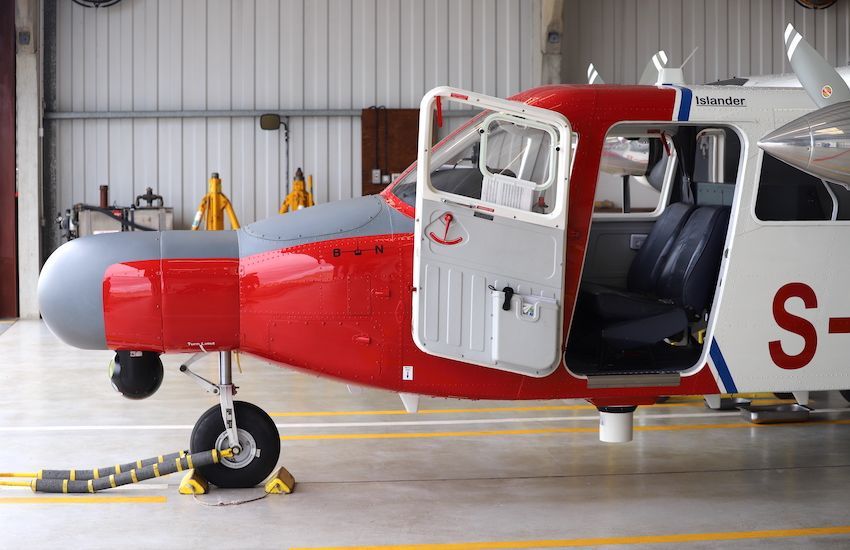

For 44 years, Channel Islands Air Search has been helping save lives around the islands’ coastlines and surrounding waters.
It has evolved and become more sophisticated since its launch in 1980, with volunteers now crewing an Islander based in Guernsey which cost more than £2.7m to buy and equip.
With annual running costs of some £300,000, fundraising is essential to keep the "eyes in the sky" flying, and that will be helped this year after CI Air Search was chosen by the Guernsey Round Table to be the beneficiary of this year's Harbour Carnival.
Express visited the Air Search Hangar at Guernsey Airport to find out more...
Strong tides, changeable weather and hidden reefs combine with a high volume of leisure boating and commercial shipping in the waters around the Channel Islands.

Pictured - left to right: John Fitzgerald and David Hugo.
That is a risky combination, but also one that is covered by a unique service which can be called into action at any time.
Channel Island Air Search provides a rapid response for the islands and adjacent French coast, in an operation that has steadily evolved and advanced since its inception.
CI Air Search's first plane was a Piper Aztec, which was initially on loan from Guernsey Airlines and then bought with the help of the Lions Club. This established a link that remains in place today and is visible through the aircraft bearing the Lions' logo and the name Lions' Pride.
Both the technology involved and the role played by Air Search has changed.
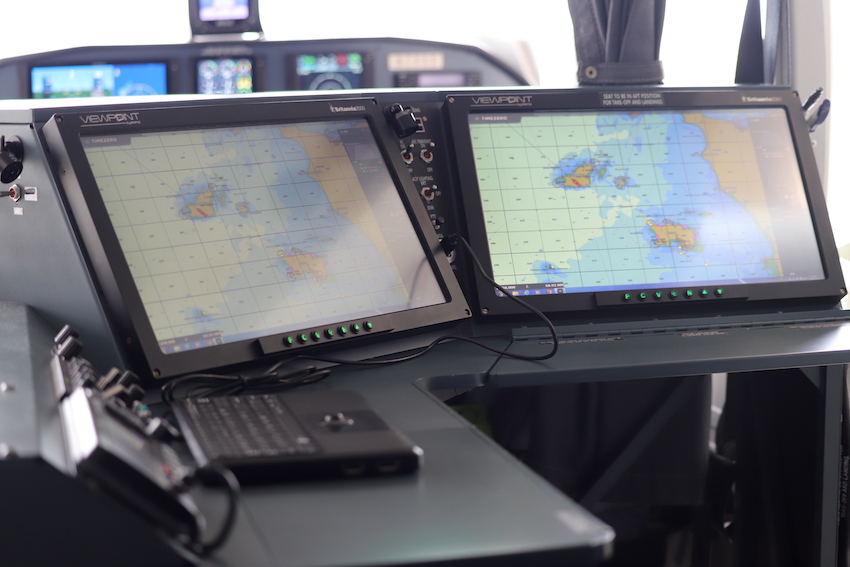
Pictured: CIAS has often been referred to as the "lifeboat's eye in the sky".
Paper charts and plotting courses by hand have been replaced with navigational software which makes the most of current technology.
"In the very early days, all the searches were basically sea searches, hence the name the 'lifeboat's eyes in the sky'. But now they are split pretty much 50/50 between land and sea," said Accountable Manager John Fitzgerald, who has been a member of the crew for some 30 years.
People boating in the tricky waters around the Bailiwicks are now much more likely to know where they are and a radio call will be enough to get help - Air Search's role is concentrated on situations where lives are in danger.
That is increasingly in helping searches around the cliffs and on land for missing people. For sensitivity reasons, not all these searches can be reported.
They are available to be called out 24 hours a day, 365 days a year, providing a service to the rescues centres in the Channel Islands, the French CROSSMA and CROSSCO centres on the adjacent French coast and at times to help the English coastguard.
The charity has about 18 volunteers on the operational side.
They are keen to attract more.
"We need to be able to rely on them because we are a small team," said John.
"And we do spend a lot of effort getting people trained to be able to fulfill a role within the aircraft. So being available as part of our team, not only for call-outs, but for the training and for the social side is really important. And we're a good team. We all enjoy each other's company."
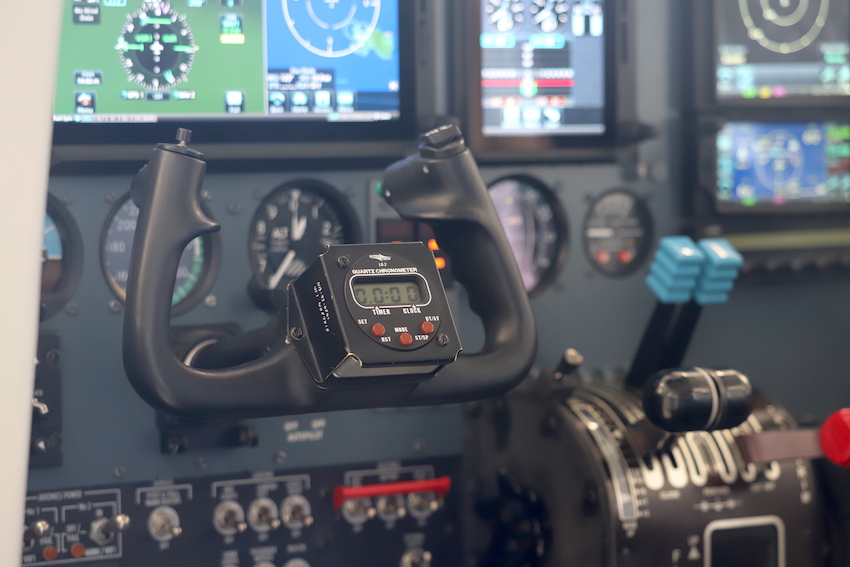
Pictured: "We're a good team. We all enjoy each other's company."
The pilots generally come from a commercial background, with the need to have a minimum of 2,000 hours of flying and an American professional licence with an instrument rating.
Next to the pilot on the plane is the P2 observer, who will help the pilot, reading checklists and changing radio frequencies, but their main role is observation while on a search because they have the best view.
In the middle of the plane sits the search director who is usually in communication with the agencies on the ground like coast guard or the police. They also have a repeat of the thermal camera on one of their monitors, the other showing the mapping.
At the back is the P4 seat, who is the person with the most situational awareness with the best view of everything that is happening. Part of their role is to drop the smoke floats when something is spotted.
The P5 seat is the electronics operators seat where the camera is controlled from.
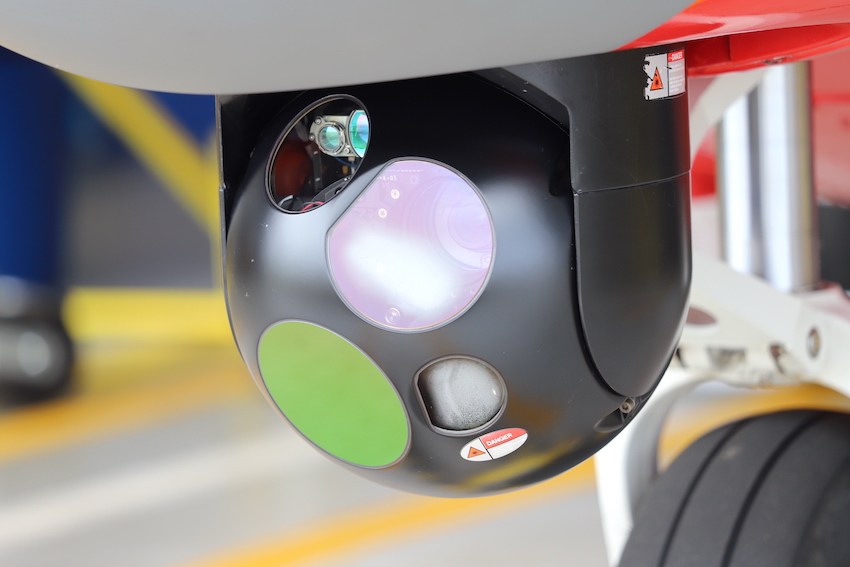
Pictured: "Five pairs of eyes can be far more efficient."
It's an intensive role, with the mission management software. A series of maps can be called up, you can mark things of interest and automatically generate headings and distances to get back to it. The camera can swing straight to it. They can see all ships transmitting AIS signals, again something the camera can be directed straight to.
"Everybody also looks out of the windows. Five pairs of eyes can be far more efficient than any electronics for a lot of what we do."
From the initial call out to being airborne takes about 35 to 40 minutes, or longer at night as the airport has to reopen as air traffic control and the airport fire service also need to be present.
After volunteers arrive at the dedicated Air Search Hangar the pilot walks around the aircraft doing checks, and there is a situation and safety briefing for crew.
Looking for a person lost at sea, they will often use a 'step-ladder' search, following a track for a quarter mile before turning and going back the other way.
All eyes will be looking out the plane's windows.
"It's not always easy when we're looking at 4,000 square miles of water."
Pictured: The Lions' Pride in the air. (Rob Le Page)
Air Search will be called out more than 20 times a year, but not all of those are flown.
Those searches, however, can be long.
"We've done three in Jersey over the last year where we were up over a period of days to try and help the authorities find people."
CIAS is, in essence, operating a voluntary flight operations department with an increasing amount of rules and regulations, all of which are adhered to and updated by volunteers.
Annual operating costs are around £300,000 each year.
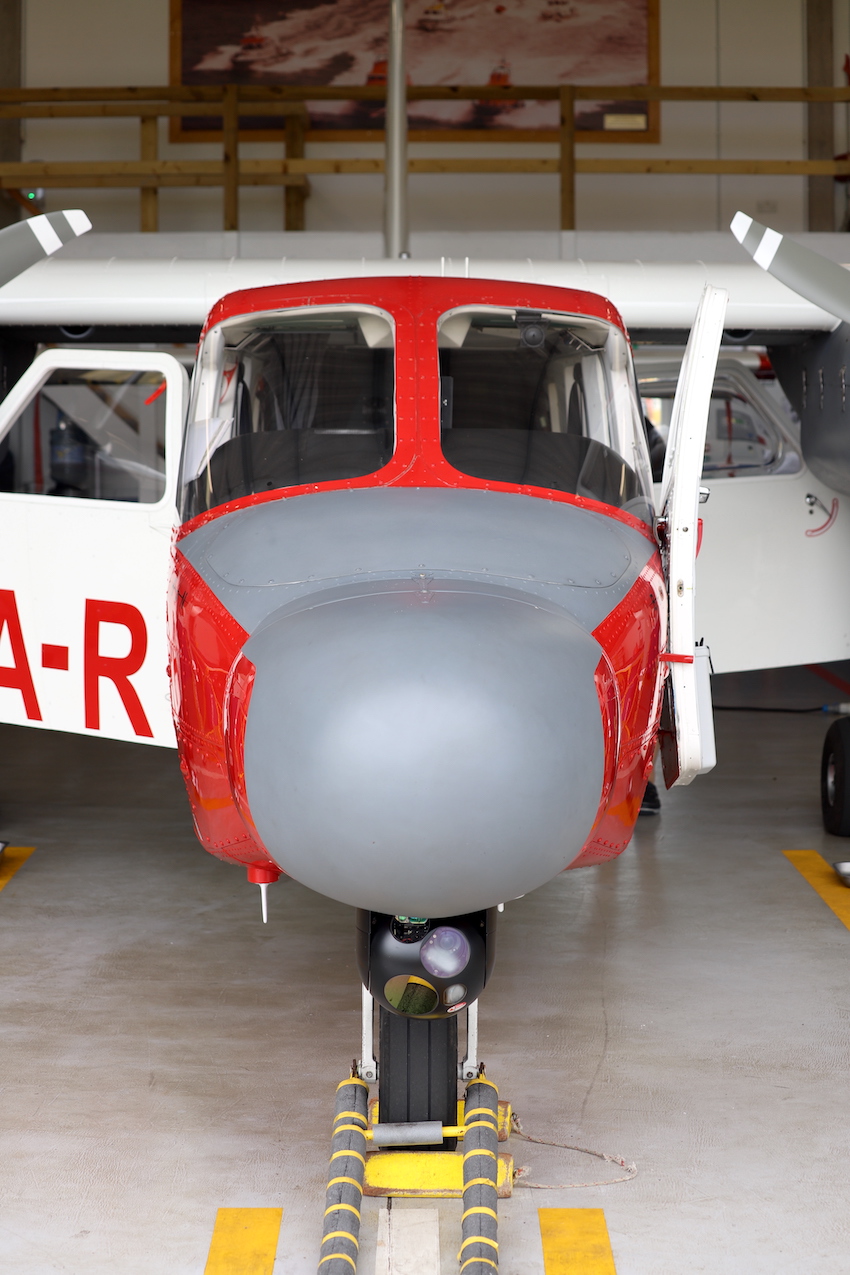
Pictured: The CI communities are "very generous", they said.
Although everyone involved is a volunteer, they still need to raise money to pay for fuel and the upkeep of the aircraft and equipment on board.
"We're very fortunate that the communities in the Channel Islands are obviously very generous," said Guernsey Friends of Air Search President David Hugo.
"But in the last few years, I think most charities have had a tough time with the covid pandemic and also with the cost of living crisis which has been well publicised."
Friends of Air Search operate in the Bailiwick of Guernsey and in Jersey.
Money is raised through ad-hoc events like quizzes and bingo but also through taking part in other larger ones like Meet the Pilots.
"The aeroplane's obviously our best form of advertising, really. So it's great for us to be able to showcase the aircraft and for fundraisers and crew to be able to tell the public more about what we do.
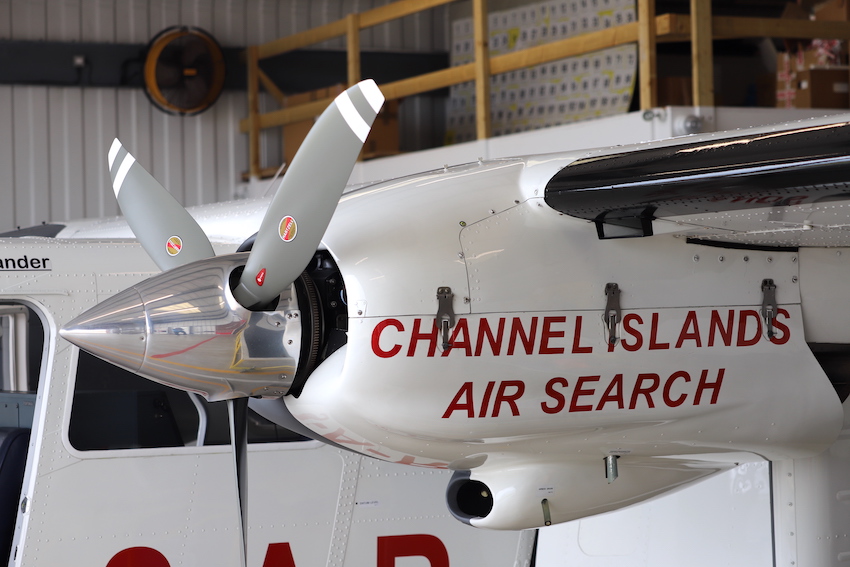
Pictured: "There's always going to be a need for a quick, speedy response service."
"We're also lucky to be taking part in the Aero Club Wings and Wheels event later on in the summer as well. Obviously we're thrilled this year that we've been chosen as the beneficiary charity for the Round Table Harbour Carnival, which again is a great opportunity for us to not only raise funds but also to raise awareness of what we do."
There is also merchandise including aircraft models, teddy bears and the Leo Seeker children's books written by a former crew member loosely based on real searches that have taken place.
The charity also runs a foreign currency appeal supported by BATIF Bureau de Change, where people can donate any amount of currency, even if it's obsolete, which has so far raised over £22,000.
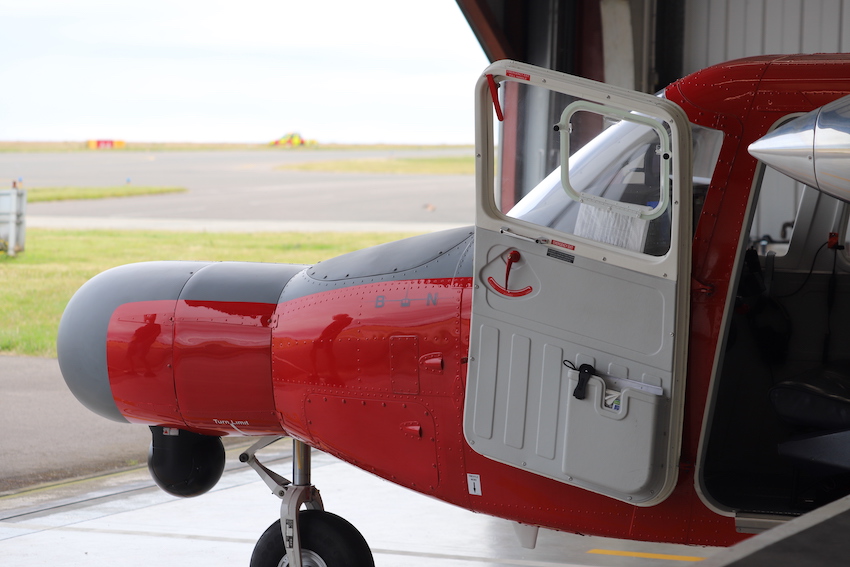
Pictured: "There's another 25 to 30 years of life in this aircraft."
Just as it has in the past, Air Search will continue to adapt, but even with the advance of drone technology those behind it still see a future for the service.
Drones like the ones being used to monitor the migrant route in the English Channel can fly for 12 hours at a time with no risks to crew.
Smaller drones can be used for land-based searches but currently have short flight times.
"While people are boating, there's always going to be a need for a quick, speedy response service to get out there and find the casualties," said John.
"We can see things differently to the way the lifeboat can see them, for example. They have to contend with the troughs and peaks of the waves, for us the sea is flat, we can see everything all the time.
"On occasion we've been guiding the lifeboat onto a casualty in the water and they've only been about 15ft away but they can't see them. So there's still a demand for us and there's another 25 to 30 years of life in this aircraft."
Listen to the full interview below or via your favourite podcast provider...
Comments
Comments on this story express the views of the commentator only, not Bailiwick Publishing. We are unable to guarantee the accuracy of any of those comments.